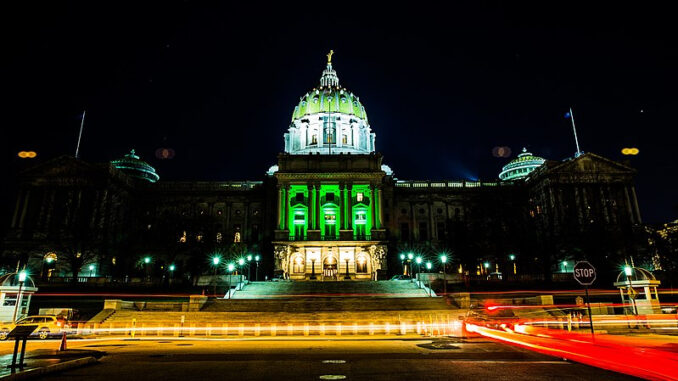
Maxwell Marcello | Staff Writer
Last spring I penned a column on my visit to Washington, D.C. and compared the overreaching security apparatus to a military occupation. From the medieval walls around the Capitol to heavily armed police restricting daytime foot traffic on Pennsylvania Avenue, I left D.C. appalled, grappling with feelings of indignation at the sense of what our country has become.
What was once envisioned as the epitome of public trust, showcasing the finest aspects of the ‘land of the free,’ is now poised to become a glimpse into a dystopian future we are hurtling toward.
My whirlwind piece caught the attention of one of my professors, who shifted my focus from anger to inquisition.
Why was D.C. in this state, and could this become a bellwether for our country?
Addressing this question involves examining two critical factors: fear and the constitutional mandate.
Throughout American history, public fears have been used by government officials to justify otherwise unconstitutional expansion of the state’s power.
The first large-scale growth of this power came during the Second Red Scare which saw American institutions rapidly construct a surveillance state in the name of safeguarding the country from a foreign ideology.
Following the Sept. 11 attacks, this surveillance state underwent a greater expansion than it had in the 1940s-50s, and it is now also computerized.
Practices such as warrantless raids, show trials and NSA mass surveillance became emblematic of the federal government’s new standard operating procedures, all to protect America from threats abroad.
However, in 2023, the landscape has fundamentally shifted, with the current threat of politically-fueled violence originating from the United States itself thanks to the accessibility of online platforms that support all corners of radical, and often illegitimate, beliefs.
Since the 2000s, acceptance of political extremism has grown concerningly high. While most of this can be blamed on bad actors using the internet to spread their beliefs, we are forgetting a few critical elements, the political elite themselves.
The seeds of Jan. 6 were sown, not by Trump, but the 2008 presidential election. Birtherism, a racially-charged right-wing lie that believed former president Barack Obama was not a natural-born U.S. citizen, began to make its way through the Republican Party.
Although presidential nominee John McCain did not endorse or engage with this lie, his party would take a different approach. Some Republican voters and politicians actually convinced themselves that Obama was of foreign origin and openly questioned the legitimacy of his presidency. Although Obama would later release his birth certificate in 2011, the lie still loomed over his presidency.
Birtherism was the first large-scale smear campaign using social media to propagate misinformation for political means, setting a dangerous new precedent. It is here where we see a small subunit of the Republican party begin to exploit these tactics for control of the national conversation and electoral success. From Birtherism onward, the line between online political discourse and real-world discourse fused into an amalgamation unlike anything in our history.
Republicans won a landslide victory in 2010, capturing control of Congress and the majority of state legislatures. This victory can partly be attributed to Birtherism. Trump himself promoted Birtherism on Twitter and during his media appearances, beginning his long-running habit of making false statements to drive political support.
During the 2016 campaign, Trump took advantage of this already-growing trust in misinformation and took part in the propagation. We can argue that without fake news spreading on Twitter, Facebook, etc., Trump may have lost his presidential bid.
After his victory, we saw fake news reach a fever pitch alongside growing rates of right-wing violence, culminating in the attack on the Capitol. The attack spurred Congressional Democrats to undertake the construction of large fences at these iconic buildings and restricting public tours.
False rhetoric still remains harmful among Trump’s supporters in Florida and Georgia who are making death threats toward those overseeing his criminal case. In an attempt to curb the real-world harm of these lies, Trump was subjected to a gag order which he has defied.
Today, we stand at a watershed moment in our nation’s history. As our past has shown, when there is fear and violence among the citizenry, liberal democratic governments can devolve into a police state under the pretense of emergency powers.
Thankfully we are not at that point yet, giving us time to course correct. Either we as Americans reclaim our political discourse, civilize it and think rationally, or we risk being subdued.
The choice is ultimately to be determined by Americans, and what online platforms they choose to consider as educational.

